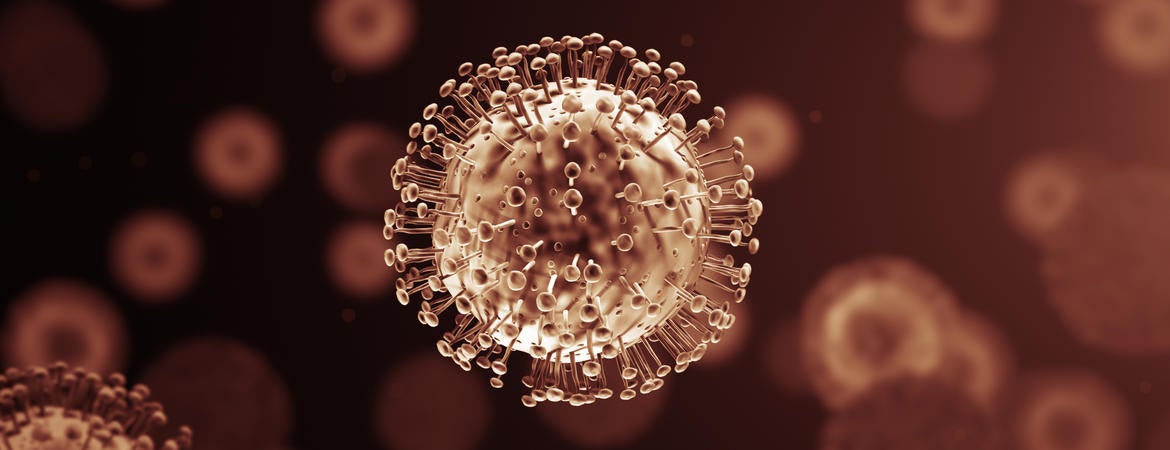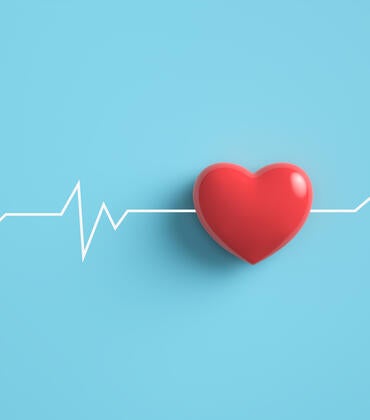
Brandon Brown, an epidemiologist at the UC Riverside School of Medicine, has given numerous media interviews on the novel coronavirus, COVID-19, and related topics. An associate professor in the Center for Healthy Communities, he answers several common questions about the virus and its spread.
Who should wear a mask?
The Centers for Disease Control and Prevention recommends that we wear cloth face coverings — homemade masks, scarves, bandanas — in public settings, such as the grocery store or a pharmacy, where other social distancing measures are difficult to maintain and when other masks are not available. This prevents us from touching our face and prevents asymptomatic or symptomatic people from spreading the virus.
If people suspect they have the new coronavirus, what should their course of action be?
If someone suspects they may have coronavirus, and have symptoms that are indicative of it, including temperature above 100.4 F, they should call their primary care physician, the local public health department, or the local coronavirus hotline if one has been established. They should not go directly to urgent care since they will need to be treated as a person under investigation rather than a regular patient. We don’t want people who have coronavirus to possibly expose other patients and health care providers or front desk workers to it in the hospital setting. Any nonessential doctor’s appointments should be deferred at this time.
Why is your best bet to stay home with mild to moderate symptoms?
Staying home if you have symptoms similar to a common cold is best, because hospitals will begin to have more and more cases of coronavirus, and they should focus on those rather than people with a common cold that can be treated with home remedies in many cases, including plenty of rest and nutrition. If you have a common cold, and go to the hospital, you can also be exposed to other communicable diseases. Watch out for the 100.4 temperature, which is an indicator of when you should start making calls and ensure that you are isolated from others. A thermometer is a good tool during this pandemic.
Is it true that the virus can only live on your hands for five to 10 minutes?
How long the virus can live on hands is not as important as what you do with your hands. If you are washing your hands regularly, the virus will not live on your hands for a long time. The virus can live on surfaces for days, and we are constantly using our hands and touching surfaces. More important than thinking how long the virus lives on your hands is to avoid touching your eyes, nose, and mouth with unwashed hands. Wash your hands!
What are the best ways to contain the pandemic at this point?
Social distancing is the best way to contain the spread at this point, along with vigorous and frequent handwashing, and making testing more available to identify positive cases and get them isolated. Aggressive social distancing, meaning going outside for food and medications only, would help decrease the spread of infection.
Should people be taking precautions like changing their clothes after going to the grocery store?
Washing your hands and avoiding touching your face are more important prevention methods than washing clothes. If we do that, along with staying home and physical distancing, we can dramatically decrease our likelihood of getting infected.
People should indeed be changing their clothes after going to places that are currently attended by hundreds of people every day such as grocery stores. Once you head home after the grocery store, first step is to use a sanitizer before touching your car door and steering wheel. Next, once you are home, you can leave any nonperishables in your garage for a period of time in case they have virus on them. Then, change your clothes, wash your hands, and re-enter your environment that is hopefully free from COVID-19.
For many people who have a home and a closet to keep their clothes, going to a laundromat may be their only option to wash their clothing. In that case, it’s recommended they go during times when there are fewer people there in order to practice physical distancing, and wear gloves and facemasks.
Why aren’t gloves being recommended to the general public even though doctors use them to help prevent the spread of germs?
Medical exam gloves don’t deter people in general from touching their faces because touching our faces is something natural that we do, with gloves or not. If we were kept in an experiment for a few hours wearing boxing gloves, we would likely still try to touch or scratch our face. Doctors use medical exam gloves for medical exams, touching people’s skin and bodies, and they change the gloves between patients. They are experts at using gloves. If you are not a doctor, then there is no reason why you would wear medical gloves. Instead, wash your hands frequently with soap and water and avoid touching your face.
Do you have any rules/recommendations around not touching your face while traveling, or not touching certain areas?
The only way to get around from the norm of touching your face is to be intentional. It is very difficult. The recommendation to not touch your eyes/nose/mouth is not only limited to mass transit, but for our everyday life. We usually interact with people on a regular basis and can have potential exposure during that time. Touching your face with hands that you just cleaned and washed with soap and water is OK. That’s when you scratch and itch. The problem is when we touch surfaces, hands, or other things that may have virus on them, and then we touch our face. That is how we can get infected.
Why should “flattening the curve” be a goal during outbreaks?
Flattening the curve is always a goal, because it just means limiting the number of infections. In phase two of an epidemic, you want to have as low a number of new cases as possible, particularly now that we have community transmission. We can achieve this with frequent and proper handwashing, staying home when possible if you are sick (or wearing a mask, washing hands and preventing the spread of infection when it’s not possible to stay home), social distancing, self-quarantine when indicated, and contact tracing for those who test positive.




